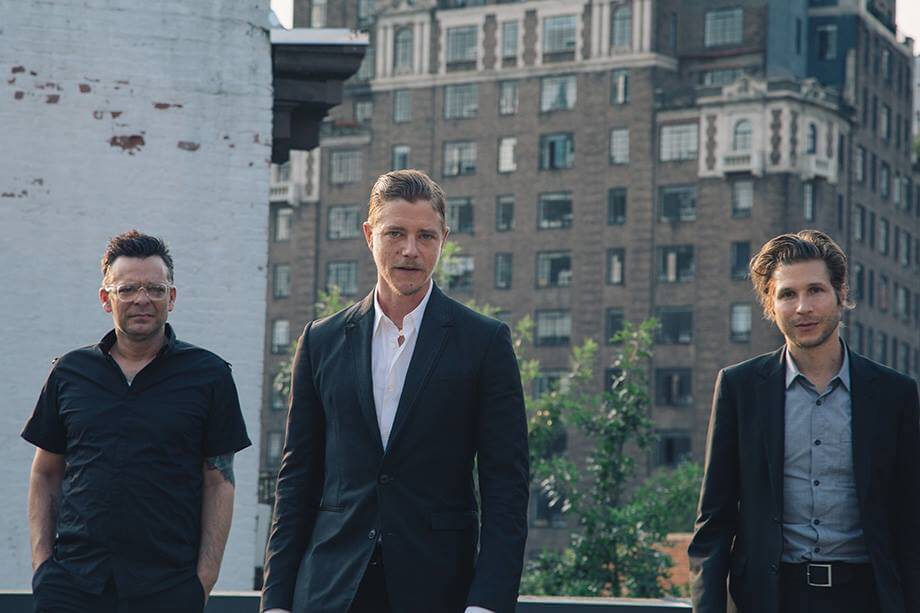Turn on the Bright Lights, Interpol’s debut album, was released 13 years ago and rightfully launched the New York based facet into the ever elusive indie stratosphere. It possessed a sort of darkly heroic surge; lyrical descents into desolation were eclipsed by a brassy yet lusty sway. Paul Banks was relentless in his baritone brilliance, Daniel Kessler held on firmly to his fine-grained guitar textures, and Sam Fogarino’s rumbling drums made songs feel both weightless and brutally powerful. Constructing such a timeless record invited the world to still scrutinize Interpol’s every musical move four albums later, yet Fogarino still can’t let go of the magic from the first. “Turn On the Bright Lights has this special thing to it because it was the first. We were just excited to make a record for Matador. We had no experience, really, and were just taking it as it came—and it just kept coming.” Interpol’s inclination to make albums that were densely compacted with catchy hooks slowly tapered off after Antics, prompting critics to attack the band’s evolution in somewhat of a raptorial manner. Fogarino remains adamant about his stance on ignorance actually equating to bliss.
“Reading articles about the band is one thing—but reviews are a no-no. We have no business reading that stuff…it’s not for artists. [Critics] have their right to an opinion, but we get what we need from our audience in real time. At shows, you have a collective reaction to every song right in front of you. It’s not just about what one person thinks.” Possibly unbeknownst to Fogarino, the band’s fifth album El Pintor has received widespread acclaim for Interpol’s return to form. It is sultry and wise and rueful and unapologetic; it is also the band’s first album without bassist Carlos Dengler. Fogarino is candid when discussing this vacancy. “Quite soon in the process of making this record, we realized we had chemistry as a 3 piece. Before when we recorded, there was always some kind of tension or disagreement and ego always reared its ugly head. And often, that’s what makes a good record. Now, we’re just a better band—that’s all there is to it.” The intensity of our conversation grows.
“When you have a collective and one person in it is no longer 100% into the process, it suffers. Now everyone on stage wants to be there—and it makes a big difference. Something about [the band] feels more confident and relaxed.” In the absence of Dengler, Fogarino basks in the stylistic pliancy of Banks and Kessler. “When you can continue to respect your bandmates after all these years is a gift in itself. I am in awe of them. There are so many moments when they all shine in a different light and I think to myself ‘wow they’re really good!’” The auspicious nature of Interpol’s creative journey impresses Fogarino even more. “During our touring cycle after putting the record out, we found ourselves having these little conversations about the future. It’s pretty exciting…the many different directions we could go in. As an artist, you don’t really want to repeat yourself. I never have to worry about that—and it’s all because of the flexibility of my bandmates.”
Interpol
Thursday July 23rd and Friday July 24th
House of Blues
Boston
7pm/All Ages/$30-$40

